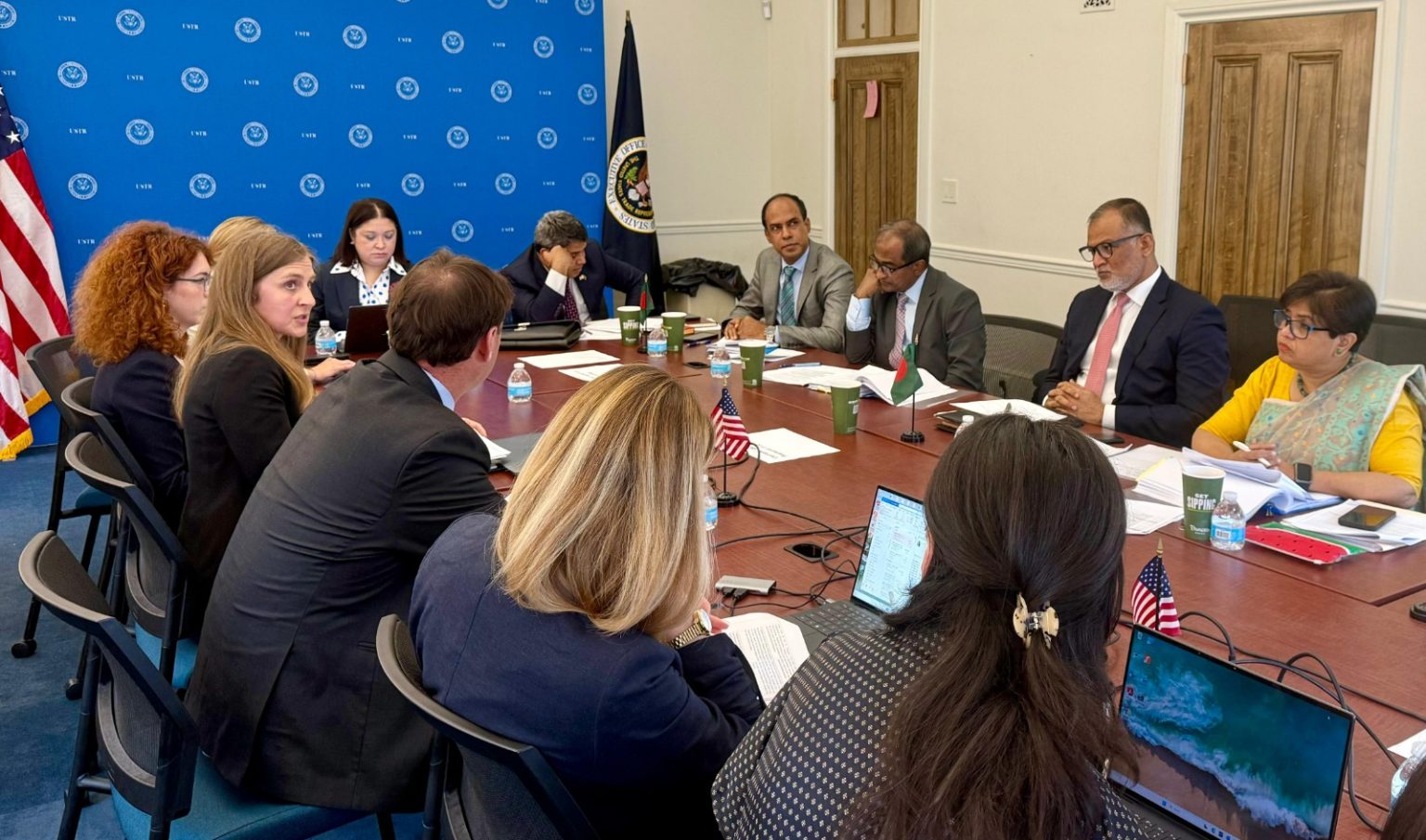Bangladesh and the United States entered the final day of high-stakes tariff negotiations in Washington on Friday, with both sides reporting progress but leaving critical issues unresolved — including the proposed 35-percent additional tariff on Bangladeshi exports set to take effect from 1 August.
The three-day dialogue marks the second round of bilateral trade talks since April and has taken on heightened urgency amid growing anxiety from Bangladesh’s export sector, particularly the readymade garments industry.
On Thursday, Commerce Adviser Sheikh Bashir Uddin met privately with US Trade Representative Ambassador Jamieson Greer, a key figure in the Trump administration. According to a statement from the Chief Adviser’s Press Wing, the discussions were held in a sincere and constructive atmosphere, covering tariff frameworks, strategic trade interests, and future market access.
Bangladesh expects a fair tariff structure that preserves competitiveness, Sheikh Bashir told his counterpart, citing Dhaka’s recent moves to expand imports from the US, including LNG, wheat, cotton, and Boeing aircraft. In response, Ambassador Greer expressed his commitment to deepening bilateral trade cooperation.
Officials said broad consensus had been reached on several trade-related issues, though the 35 percent tariff proposal remains a sticking point. Bangladesh is seeking parity with Vietnam, which secured a lower 20 percent rate in a recent US agreement.
Chief Adviser’s Press Secretary Shafiqul Alam described the talks as comprehensive and constructive but confirmed that no final deal had been reached by the end of the second day.
The Bangladesh delegation is led by Commerce Adviser Sheikh Bashir Uddin. National Security Adviser Dr Khalilur Rahman and Chief Adviser’s Special Assistant on ICT Faiz Ahmed Tayeb are participating virtually from Dhaka. Commerce Secretary Mahbubur Rahman and Additional Secretary Dr Nazneen Kauser Chowdhury are attending in person.
With garments accounting for over 85 percent of Bangladesh’s 48 billion dollars in exports — and the US market representing 18 percent of that total — exporters fear the tariff could result in mass order cancellations, factory closures, and job losses.
The Bangladesh Garment Manufacturers and Exporters Association (BGMEA) has sought an urgent meeting with Chief Adviser Dr Muhammad Yunus, warning of grave economic fallout.
This is no longer just about trade numbers — it’s about protecting several million jobs and maintaining economic stability, a BGMEA official told TIMES of Bangladesh, adding that if the talks collapse, Bangladeshi exports may face nearly three billion dollars in additional duties annually.
He warned that without a breakthrough, Bangladesh could lose competitiveness in the US market to Vietnam and India, both of which enjoy lower tariff regimes.
The final round of talks resumed Friday morning at 9:00 am Washington time. If no agreement is reached, the 35 percent tariff will take effect automatically, dealing a potentially severe blow to Bangladesh’s export economy.


